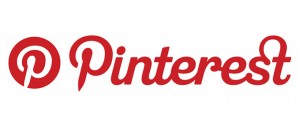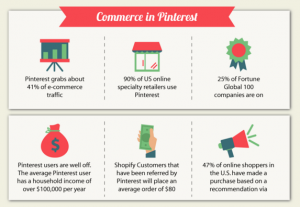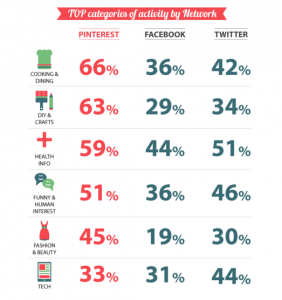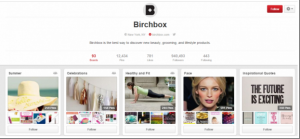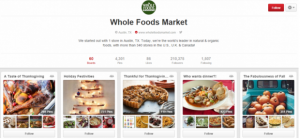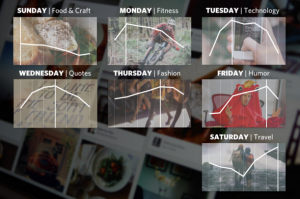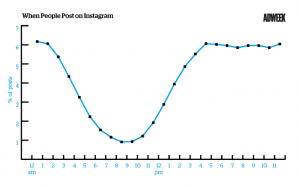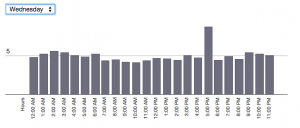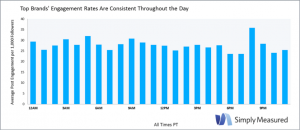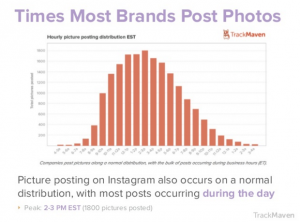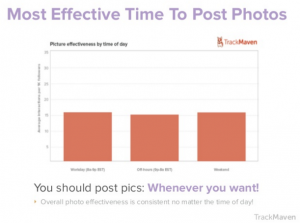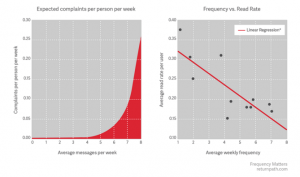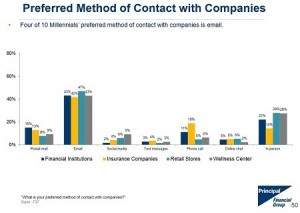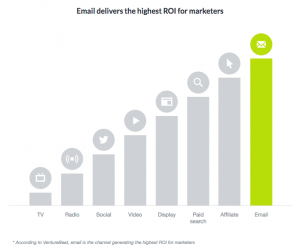The main recommendations I gave to Africa Blooms with respect to scheduling that were brought up in the client presentation meeting were:
- the platform with the most engagement which should be focused on;
- the best times to post;
- the recommended frequency of posts; and
- how to increase engagement with followers.
With a limited budget we found Instagram was the best platform as engagement was much higher, whereas Facebook required paid promotions to get any significant reach for a post and Twitter had a number of impressions but zero click-throughs or engagement. Blooming, the owner of Africa Blooms, appreciated this feedback as we gave her a social media strategy for a limited budget she can implement right away and a strategy that includes greater Facebook engagement when she can raise her marketing budget.
I learned a lot during this project by actually using Hootsuite in a marketing capacity and monitoring the Africa Blooms social media channels. We were limited by a lack of budget but it made me focus on ways to increase engagement without paying for it. I found using Hootsuite not nearly as helpful as I would have expected for a platform with so many users and a billion dollar valuation. Even upgrading to Hootsuite Pro it was still a frustrating platform to use with bad UX design and little analytics available without paying for additional reports (e.g. Facebook Insights were really useful but after the first report we would have had to pay). It took much longer to schedule posts than I would have thought. Aside from Hootsuite, one of the major frustrations with social media scheduling is the different requirements of each social media channel. Since Twitter has such a strict character limit (once you attach a picture and link you’re left with very few characters to get a message across), Facebook isn’t conducive to hashtags and on Instagram it is beneficial to use a large number of hashtags you can’t just schedule one post for all three platforms. Each post must be created and scheduled separately for each platform, which is very time consuming.
While we found the greatest engagement on Instagram, it is the hardest platform to optimize your strategy as there is little analytics available. With the little data we did have to go on we found daily posting was the best practice and that the most important factor was to be posting high quality content. Our posts with the least engagement were those with low quality photos so I suspected it had more to do with content than with timing. With Instagram I recommended that Blooming post daily, however, in the client presentation this was a point of concern as she didn’t have the time or available content to be posting everyday. We found a drop in engagement when we didn’t post for a couple days so I think it’s important to be consistent and post daily, especially for a fashion company. I gave Blooming suggestions on how to find more content and what to post and together we determined the best way to go forward would be to post every second day finding additional content from the brands she is selling on her website and their advertising materials.
The research I conducted on best times to post generally said Wednesday and Saturday were the best days, however, this wasn’t reflected in our data. We had very limited data so it was hard to come to any real conclusions on best times. Our data didn’t contradict the research as we found weekday evenings to have good engagement as well as weekends, but we didn’t find that Wednesday and Saturday specifically received better engagement than other days of the week. It would require a lot more time to really have noticeable insights as the engagement we received seemed to be more based on the content of the posts and hashtags used, not necessarily on timing. However, I also believe the stable engagement throughout the week is just a general insight on Instagram, that timing isn’t nearly as important as it is on platforms like Twitter. I think this is mainly due to the longer lifetime of a post on Instagram as compared to Twitter posts (approximately 10 hours on Instagram versus 20 minutes on Twitter). Unfortunately the engagement on Facebook and Twitter was so low that no real insights could be taken at all with respect to best times to post as we received little to no engagement on every post.
Overall this was a really insightful project, not only did I learn how to use Hootsuite and what it takes to create a social media schedule for a company, I also learned a lot from my team members who had a number of helpful insights about best practices for content, email marketing and Google Adwords. Prior to this class I likely would have just created an Adwords campaign without AB testing it but now I’ve learned how important having two campaigns is to determine best practices, and how Adwords campaigns can be tied to social media campaigns. We also noticed that there were certain days Adwords had much greater effect so on a limited budget it was much more cost effective to use it on Thursdays and not waste money on Mondays using Adwords.
This project taught us all a lot about how to create an effective digital marketing campaign on a budget. It’s amazing how much you can do with such a limited budget so we learned how powerful internet marketing is for a company on a limited budget but also how much you can do if you actually do have a budget using promoted posts and Google Adwords. Digital marketing has really leveled the playing field when it comes to advertising. A company no longer needs a million dollar budget for TV, radio and print advertisements. Digital marketing is so much more cost-effective so it gives smaller companies the ability to successfully market their company without a large budget as long as they are smart about the way they do it.

